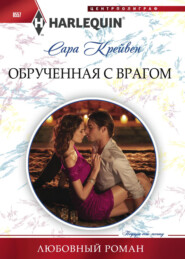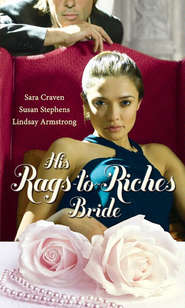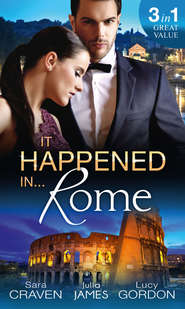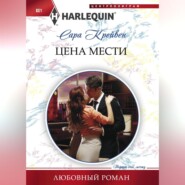По всем вопросам обращайтесь на: info@litportal.ru
(©) 2003-2024.
✖
Dark Ransom
Автор
Год написания книги
2018
Настройки чтения
Размер шрифта
Высота строк
Поля
‘Agua mineral?’ she asked, adding a precautionary, ‘Sem gelo.’
The man shrugged, clearly contemptuous of anyone who would ask for a drink without ice in such heat. He waved her towards one of the stools at the bar, and uncapped a bottle taken from a primitive refrigerator.
But the glass she was handed, along with the bottle, was surprisingly clean, and the drink tasted magical. Good old Coca Cola, she thought, taking a healthy swig.
The hotel proprietor had vanished back into the domain behind the beaded curtain. Charlie suspected that he was probably steaming open Senhor da Santana’s letter at that very moment, and wondered whether it would ever reach its rightful destination. Well, fortunately that wasn’t her problem. She was simply the messenger girl.
She glanced at her watch, decided there was time for another Coke, and tapped on the counter with a coin. There was no response, so she knocked again more loudly. The bead curtain stirred, and this time two men entered, both strangers.
More customers, she decided, dismissing a faint uneasiness as they came round the bar to stand beside her.
‘Senhorita.’ It was the smaller and swarthier of the two men who spoke. He was wearing denims and a faded checked shirt, his hair covered by an ancient panama hat which he lifted politely. ‘Senhorita, the boat, he wait.’
‘Oh, my God.’ Charlie slid off her stool, thrusting a handful of coins on to the bar-top. Either she’d lost all track of time, or her watch must have stopped. Thank heavens Captain Gomez had sent someone to find her. The last thing she wanted was to remain here in Mariasanta, possibly at this hotel, until the Manoela came downstream again.
A battered jeep was waiting outside the hotel. The small man opened its door, motioning Charlie on to the bench seat.
Under normal circumstances she wouldn’t have dreamed of accepting such a lift, but time was of the essence now, and she scrambled in. However, she was slightly taken aback when the other man, taller, with a melancholy black moustache, climbed in beside her, effectively trapping her between the two of them.
Her uneasiness returned in full force. She began, ‘I’ve changed my mind …’ but got no further as the jeep roared into life with a jerk that nearly sent her through its grimy windscreen.
By the time she’d recovered her equilibrium they were heading out of town—in the opposite direction to the dock and Manoela, she realised with horror.
Suddenly she was very frightened indeed. She turned to the driver, trying to speak calmly. ‘There’s been a mistake—um engano. Let me out of here, please.’
The driver beamed, revealing several unsightly gaps in his teeth. ‘We go boat,’ he assured her happily.
‘But it’s the wrong way,’ Charlie protested, but to no avail. The jeep thundered on towards the heavy green of the forest, and if she was going to scream, now was the time, before they got completely out of town. But she wasn’t in the least sure that her throat muscles would obey her.
She took a deep breath, trying to think rationally, then reached in her bag for her wallet.
‘Money,’ she said, tugging notes out of their compartment. ‘Money for you—to let me go.’ She thrust the cash at the man with the moustache. ‘It’s all I’ve got, really.’
The man inspected the cash, nodded with a sad smile, and handed it back.
‘I haven’t any more,’ she tried again desperately. ‘I’m not rich.’
Or were all tourists deemed to be millionaires in the face of the poverty she saw around her? Maybe so.
But if they didn’t want her money—what did they want? Her mind quailed from the obvious answer.
The road was little more than a track now, and the jeep rocketed along, taking pot-holes and tree roots in its stride. It occurred to Charlie that if and when she emerged from this adventure it would be with a dislocated spine.
The driver was whistling cheerfully through one of the gaps in his teeth, and the sound made her shiver.
He glanced at her and nodded. ‘Boat soon.’
She said wearily, ‘The bloody boat’s in the other direction,’ no longer caring whether they understood or not.
The track forked suddenly, and they were plunged deeper into the forest. It was like entering a damp green tunnel. Animal and bird cries echoed raucously above the sound of the engine, and tall ferns and undergrowth scratched at the sides of the vehicle as they sped along.
Charlie had a feeling of total unreality. This couldn’t be happening to her, she thought. Presently she would wake up and find herself safely in her hammock on board the Manoela. And when she did her first action would be to tear up Fay Preston’s letter.
The jeep began to slow, and Charlie saw a dark gleam of water ahead of them. Perhaps there was going to be a miracle after all, she thought incredulously. Maybe this was just a very roundabout way to the dock, and the Manoela would be there, waiting for her.
But the age of miracles was definitely past. Journey’s end was a makeshift landing stage, at which a small craft with an outboard motor was moored.
The driver nudged Charlie. ‘Boat,’ he said triumphantly.
‘But it’s the wrong boat,’ she said despairingly. ‘Um engano.’
They looked at each other, and shook their heads as if in pity. Charlie dived for her wallet again.
‘Look,’ she said rapidly, ‘turn the jeep round, and take me back to Mariasanta, and I won’t tell a living soul about all this. You can take the money, and there’ll be no trouble—I swear it. But—please—just—let me go …’
The driver said, ‘Boat now, senhorita,’ and his voice was firm.
She walked between them to the landing stage. They didn’t touch her, or use any form of restraint, and she was tempted to make a run for it—but where?
People, she knew, had walked into the Brazilian jungle and never emerged again. And by the time she managed to make it back to Mariasanta, if she ever did, Captain Gomez would have sailed anyway. He waited for no one.
For the first time in her life she understood why extreme danger often made its victims passive.
You clung to the hope, she thought, that things couldn’t possibly be as bad as they seemed—or get any worse—right up to the last minute.
She could always dive into the river, she thought almost detachedly, except that she was a lousy swimmer. And the thought of the shoals of piranha and other horrors which might lurk under the brown water was an equally effective deterrent.
She got into the boat and sat where they indicated, watching as they fussed over the unrolling of a small awning set on poles.
If she was going to a fate worse than death it seemed she was going in comparative comfort.
The motor spluttered into life then settled to a steady throb, and the mooring rope was released.
And as they moved away upstream Charlie heard in the distance, like some evil omen, the long, slow grumble of thunder.
CHAPTER TWO (#ulink_013801af-a211-546f-9275-af3f207c1dad)
THE STORM STRUCK an hour later. Charlie had been only too aware of its approach—the sullen clouds crowding above the trees, the occasional searing flash followed by the hollow, nerve-jangling boom. But she’d hoped, childishly, that they’d have reached whatever destination they were heading for before its full force hit them.
She’d experienced an Amazon storm her first day on the Manoela, but at least there had been adequate shelter. The awning provided no protection at all against the apparently solid sheet of water descending from the sky.
There were other problems too. This was obviously the latest in a series of storms, and the river was badly swollen. The boat was having to battle against a strong, swirling current, as well as avoid the tree branches and other dangerous debris being carried down towards them.
Charlie wondered fatalistically if this was where it was all going to end—on some anonymous Amazon tributary, among total strangers, with her family forever wondering what had happened to her.
Her clothes were plastered to her body, and her brown hair was hanging in rats’ tails round her face. She felt numb, but couldn’t decide whether this was through cold or fear. Probably both.
Her companions were clearly concerned at the situation, but no more than that, and she supposed she should find this reassuring.













